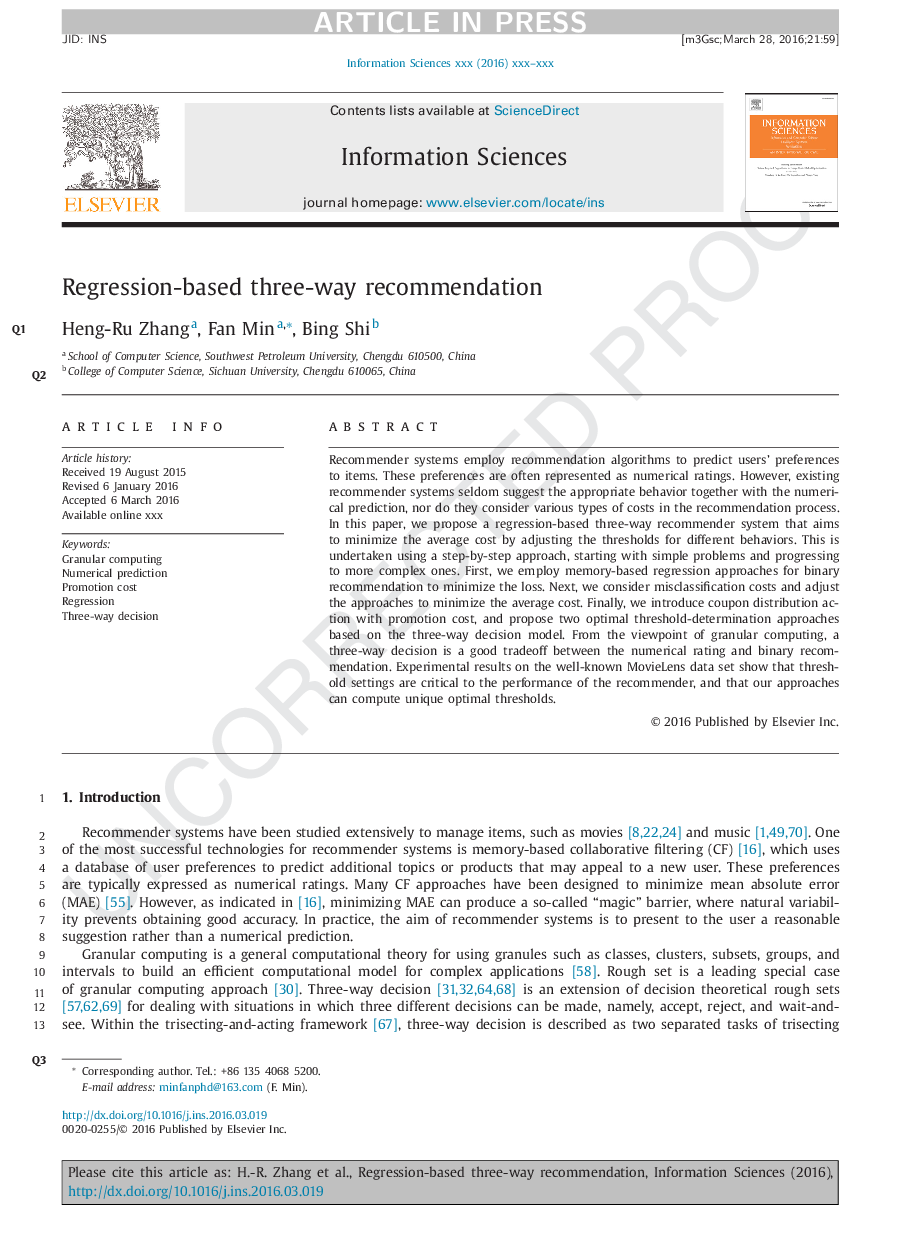| Article ID | Journal | Published Year | Pages | File Type |
|---|---|---|---|---|
| 4944881 | Information Sciences | 2017 | 18 Pages |
Abstract
Recommender systems employ recommendation algorithms to predict users' preferences to items. These preferences are often represented as numerical ratings. However, existing recommender systems seldom suggest the appropriate behavior together with the numerical prediction, nor do they consider various types of costs in the recommendation process. In this paper, we propose a regression-based three-way recommender system that aims to minimize the average cost by adjusting the thresholds for different behaviors. This is undertaken using a step-by-step approach, starting with simple problems and progressing to more complex ones. First, we employ memory-based regression approaches for binary recommendation to minimize the loss. Next, we consider misclassification costs and adjust the approaches to minimize the average cost. Finally, we introduce coupon distribution action with promotion cost, and propose two optimal threshold-determination approaches based on the three-way decision model. From the viewpoint of granular computing, a three-way decision is a good tradeoff between the numerical rating and binary recommendation. Experimental results on the well-known MovieLens data set show that threshold settings are critical to the performance of the recommender, and that our approaches can compute unique optimal thresholds.
Related Topics
Physical Sciences and Engineering
Computer Science
Artificial Intelligence
Authors
Heng-Ru Zhang, Fan Min, Bing Shi,
